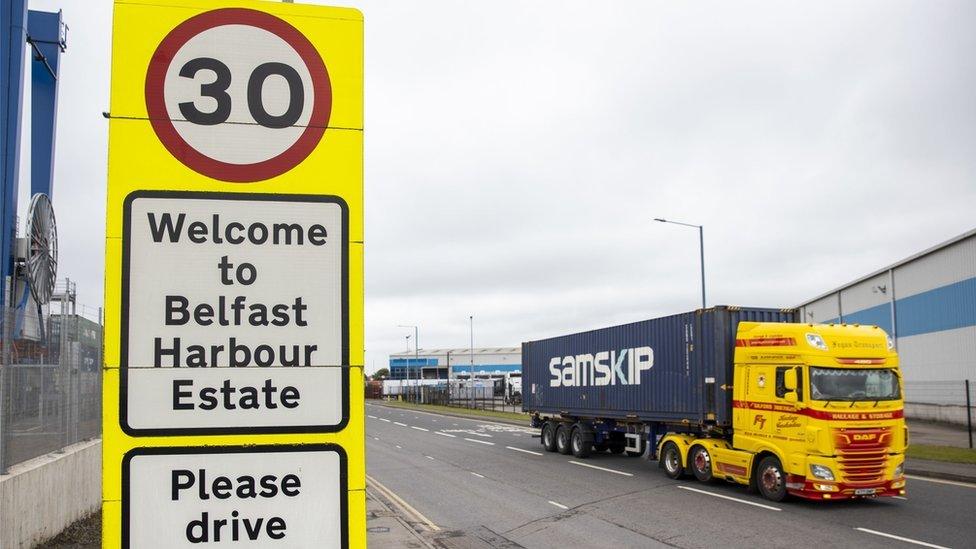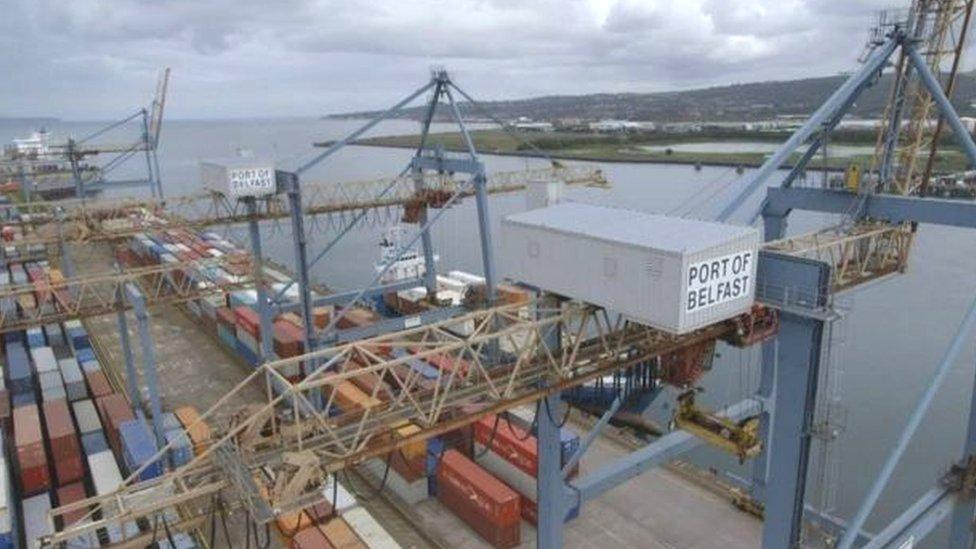NI Brexit: Decline in bulk freight moving through ports in 2022
- Published
- comments

Roll-on/roll-off (RoRo) freight which is how most consumer goods are transported actually increased by 19% to 16.2m tonnes
The amount of freight moving through Northern Ireland's ports fell by more than 5% to 27.5m tonnes in 2022, official figures suggest.
Roll-on/ roll-off (RoRo) freight, which is how most consumer goods are transported actually increased by 19% to 16.2m tonnes.
But that was offset by big falls in bulk freight and containers.
Dry bulk, which includes things like coal, gravel, grain and fertiliser, fell by 25% to 7.1m tonnes.
The fall in dry bulk likely reflects reduced imports of coal for power generation and possible changes in behaviour by businesses in response to soaring inflation.
For example, farmers are likely to have reduced fertiliser use in response to very high prices.
RoRo traffic has likely been supported by the operation on the NI Protocol/ Windsor Framework.
Under those arrangements goods leaving Northern Ireland ports for Great Britain do not face any checks or controls.
However, if Northern Ireland goods are shipped to Great Britain via ports in the Republic of Ireland they do face post-Brexit controls.
That has led to some Northern Ireland hauliers and their customers reducing their use of Dublin Port in favour of Northern Ireland ports when shipping to GB.
The official figures, produced by the NI Statistics and Research Agency, confirm that Belfast remains the dominant port accounting for two-thirds of total tonnage.
Related topics
- Published2 February 2024

- Published24 August 2022

- Published1 February 2022
